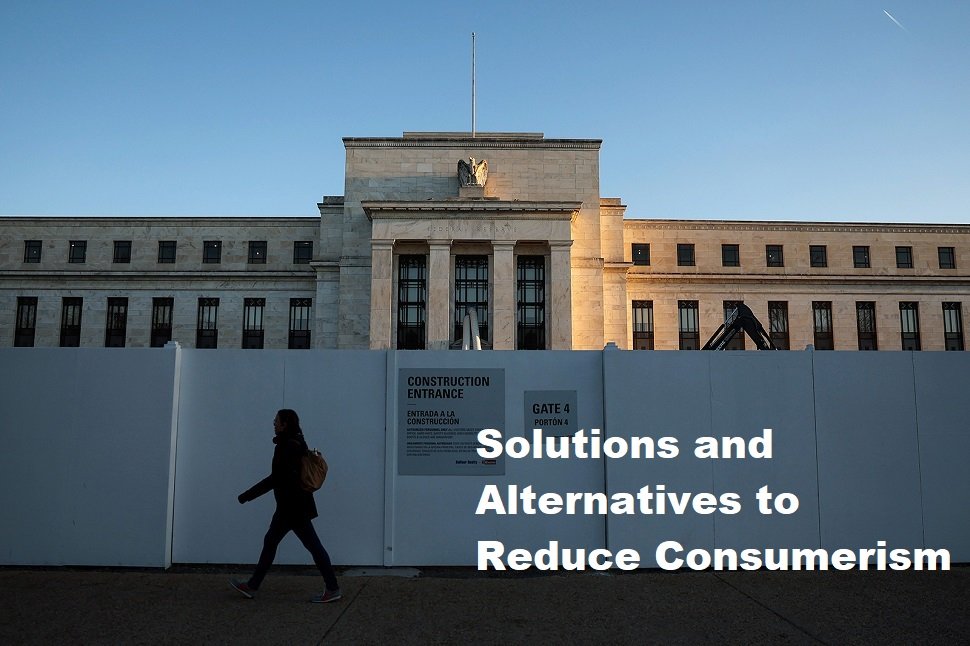Definition and History of Consumerism
Consumerism is a term that describes the major influence on consumer behavior and the values applied in everyday life. The focus of consumerism is on the individual’s need to purchase goods and services as an important factor in creating self-identity, happiness and success. This idea of consumerism emerged as a result of the growth of a marketing-oriented economy, where the global market is largely determined by consumer demand for goods of the best quality. The history of consumerism can be traced back to the Industrial Revolution era that occurred in the 18th century, when technological transformation and production systems began to increase significantly. The mass production process allows the prices of superior products to be reduced, making them more affordable for many people. At this time, society began to be led to think that happiness and success in life were in line with a person’s ability to consume goods.
In subsequent developments, consumerism is supported by various factors such as technological advances, accessibility of information through mass media and the internet, as well as increasingly innovative marketing strategies. Over the past few decades, the advertising industry has been a major force in shaping society’s perceptions of what lifestyle and consumption choices are considered appropriate. Our lives today seem to be closely connected to the logic of consumerism, where through various forms of media, we are constantly told that happiness can be found through purchasing goods and services. However, we need to realize that consumerism has certain consequences in society. This rapid growth affects the management of natural resources effectively and sustainably. Excessive consumption patterns can cause economic, psychological and environmental problems if not handled wisely. Therefore, it is important for us to understand the importance of wise and environmentally friendly consumer behavior in order to create a balance between individual needs and environmental sustainability. Therefore, the public needs to be invited to increase awareness of the impact of their consumption in social, economic and environmental contexts. Government, industry and individuals play an important role in fostering a more responsible consumption concept for a better quality of life now and in the future. Counseling, educational programs and regulations can be several effective ways to educate the public about the importance of controlling excessive consumerism.
Factors that Drive Consumerism
Factors that encourage consumerism include the difference between needs and desires in the consumption of goods and services. Needs are things that are essential for human life, such as food, clothing and shelter. Meanwhile, desires are things that affect a person’s quality of life, but are not absolutely necessary. Therefore, consumerism often arises when individuals begin to prioritize their wants over needs. The influence of media and advertising is also very strong in encouraging consumerism. Mass media such as television, the internet and magazines convey messages that emphasize the importance of having certain items to achieve social status or happiness. Advertising also influences consumer choices by using marketing strategies such as celebrity endorsements or associating products with luxury lifestyles. As a result, many individuals feel pressured to follow trends and purchase new products on offer.
The culture of hedonism is another factor that also encourages consumerism. This culture emphasizes the pursuit of personal pleasure and enjoyment as the main goal in life. In the context of consumerism, the culture of hedonism leads to purchasing products or services that offer pleasurable experiences, both physically and psychologically. This creates a cycle of ever-increasing consumption, as individuals continue to seek happiness through purchasing new goods. Finally, identity formation through consumption is an important factor in encouraging consumerism. People often build their self-image based on the things they own, such as luxury cars, stylish clothes, or the latest electronic devices. This need to maintain or improve social status encourages individuals to continue consuming and replacing old goods with new ones. Thus, these factors play a role in maintaining the cycle of consumerism that exists in society.
Negative Impact of Consumerism
Consumerism has become a lifestyle for many people around the world. However, the negative impacts of consumerism are often overlooked. One of these impacts is on the environment. Excessive consumption can lead to waste of natural resources and increased environmental pollution. Excessive production of goods and services also produces waste that pollutes the air, water and land. Apart from its impact on the environment, consumerism also has a negative impact on the social aspects of human life. When people constantly feel the need to buy and own more things, this can create a constant feeling of self-dissatisfaction. A person’s self-esteem can become dependent on the material things they have, thereby increasing materialism in society. Moreover, this makes psychological well-being increasingly threatened because individuals no longer feel satisfied with what they have.
The negative economic impact of consumerism should also be a concern. High consumer debt is a sign that many people are living beyond their means to afford the things they want. As a result, they have credit card debt and loans that they may not be able to pay in the future. In addition, consumerism can worsen income inequality in society by diverting money from low and middle income groups to high income groups which ultimately produce the luxury goods that are consumed. Exploitation of workers is another negative economic impact of consumerism. In order to meet market demand, companies often look for ways to reduce their production costs. This can involve cheap labor, underage workers, or even modern slavery. Poor and unsafe working conditions are inevitable when this system applies. Therefore, consumerism not only harms those who consume the product but also those involved in the production chain.
By knowing the negative impacts of consumerism on the environment, social and economy, we need to look for ways to reduce excess consumption and try to live more environmentally friendly. Practices such as wiser consumption, supporting environmentally friendly products, and prioritizing needs over wants can help overcome the negative impacts of consumerism. Additionally, becoming more aware of our choices as consumers and educating others about the dangers of consumerism are also important steps in combating this problem. By making more positive behavioral changes, we can help create a more just, green and prosperous world for all.
Solutions and Alternatives to Reduce Consumerism
Solutions and alternatives to reduce consumerism are very necessary in dealing with various current environmental and social problems. One important step in reducing consumerism is through consumer awareness education. This includes financial management skills, avoiding debt and making more sustainable choices. This education can be implemented through school curricula, community training, and government programs.
The practice of reduction, reutilization and recycling (3R) is also an important solution to minimize one’s consumerist nature. Implementing 3R actions in daily life such as reducing the use of single-use paper, bringing your own shopping bags, and composting is an effective way to help reduce the negative impact of consumerism on the environment.
Apart from that, the anti-consumerism movement is an alternative way to fight consumer culture. This movement emphasizes the importance of being less attached to material goods and looking at deeper values than just the satisfaction of shopping. Some alternative paradigms that can be adopted include voluntary simplicity and minimalist living, which encourage individuals to focus on basic needs and live a more environmentally friendly life.
Overall, reducing consumerism can be realized through consumer education, 3R practices, as well as anti-consumerism movements and alternative paradigms. Raising people’s awareness about the actions they take will bring positive changes to the environment and quality of life. When individuals start taking these small steps, we will see a significant impact in reducing the consumerism that is destroying our environment and giving birth to a generation that cares more about the future of the planet.









